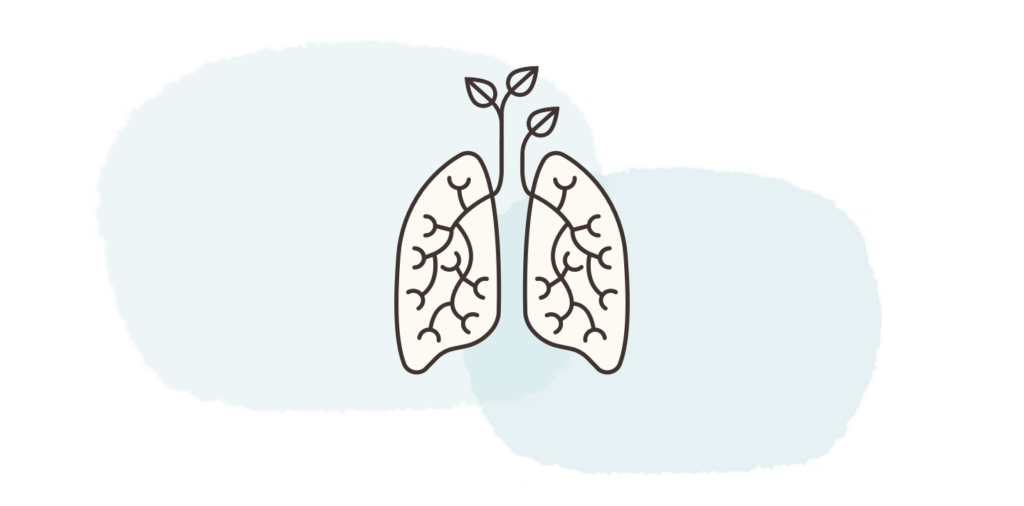Everybody breathes. Our bodies know how to naturally, it’s something we do every single second, with the average person inhaling and exhaling 20,000 times per day. It is so intrinsic to human behavior and yet so often forgotten in our awareness.
Breathing is nothing new, nor complicated. Nevertheless, the instruction – inhale, pause, exhale – is replaced by autopilot breathing as we rush ahead, and become consumed with the day and all its distractions. This year perhaps more than ever before, with the collective challenges and concerns we have felt, with a heightened awareness around breathing too close or breathing from behind a mask.

Even in “normal” circumstances, when we’re distracted, mindlessly scrolling through social media or overly exerting while writing a work-related email, we shift into a pattern of subconscious breath-holds. The good news is we can practice breathing, anywhere, anytime, and it’s effects are instant. Win, win.
The history of breathing
For centuries yogis have practiced breath control, pranayama, to aid concentration and improve vitality while the Buddha advocated breathing meditation as a way to obtain enlightenment and equanimity. When we are spinning with thoughts and stress, we can breathe too much, too fast. When we are feeling disconnected and slow, we breathe too little.
For thousands of years, the Greeks, Buddhists, Hindus, native Americans, as well as yogis, spiritual leaders, and mystics have based their practice on the breath, and its power to alter consciousness, control the mind and relinquish suffering. The high cultural regard for the breath is reflected in the many languages of which it appears, from the Greek word “pneuma” meaning breath or spirit, the Latin word “spiritus”, the Hebrew word “ruach” translating as wind, breathing or spirit, and the Arabic word “rouh” meaning breathing deeply, spirit, wind, inspiration, rest, relaxation, going home, and happiness. More recently in popular culture, breathing has received widespread awareness surrounding Wim Hof’s breathing exercises, as well as from Instagram influencer and breathwork specialist Richie Bostock, and his latest book “Exhale”
Conscious, mindful breathing allows us to take a moment to slow down and be present with ourselves. By actively paying attention to our breath we feel our bodies and emotions, and on a physiological level, welcome in more oxygen to our cells and organs.
The science of breathing
Scientific research has shown that being aware of our breath, and consciously controlling its movement is one of the most effective ways to lower our stress levels, boost our immunity, and become more mentally balanced. There’s a reason we often hear the words “keep breathing” or “just breathe”.
By slowing down the breath we induce the parasympathetic response to produce a feeling of relaxation, centeredness, mental clarity, and calm. By contrast, fast and rapid breathing activates the sympathetic nervous system, heart rate, blood pressure, sweat production, stress hormones, and anxiety.
According to the Journal of Cognition and Emotion, mindfully breathing can alter how we feel by as much as a 40 percent variance in feelings of sadness, worry, fear, and joy. Your breath is one of your best defenses against daily stress, anxiety, and angst.
The technique of breathing
With Kai you’ll receive regular reminders and instructions to develop your breathing practice, both in moments of stress, difficulty sleeping, or to start your day in a state of flow. Kai will guide you in taking a pregnant pause, a moment just to breathe, your own Control-Alt-Delete, so you bring the art of breathing into your life.
The breathing techniques below offer that sweet spot between being conscious of your breath – controlling the inhalations and exhalations – while allowing your body to do what it does best since birth. Sometimes, simply taking a moment to pause, slow down, and rest the mind can be enough to bring ease and clarity to any situation.
We suggest going slow, following along step by step, breath by breath.
Where to begin?
- Sit up and let your spine grow tall.
- Take a deep breath in, counting silently 1, 2, 3.
- Then let your breath out, counting silently 1, 2, 3.
- Repeat three times.





